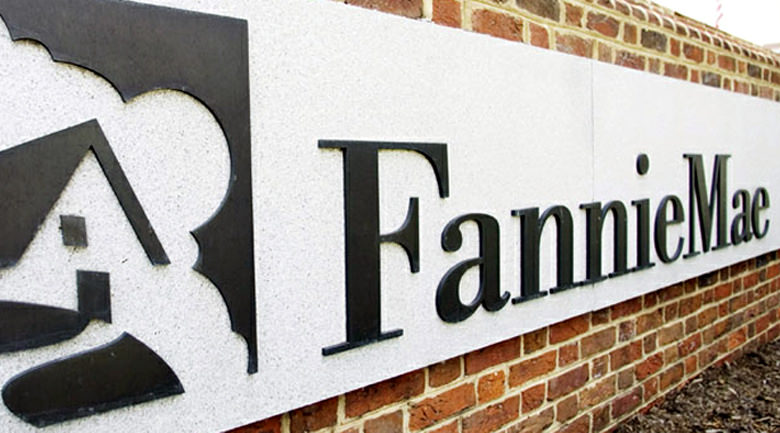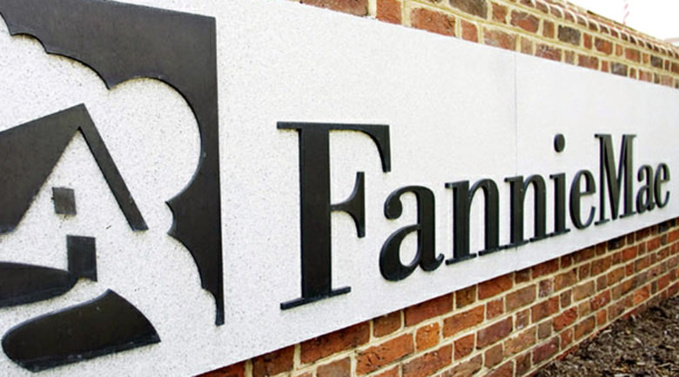The IMF released the report yesterday in a series of "working papers". This suggests that the fund sets out an official point of view on the issue, which, however, is not final and requires discussion. The report’s author is, nevertheless, extremely authoritative. He is IMF chief economist Richard Koss, who earlier worked as a senior economist at Fannie Mae, and, before that, in the group of advisers to the head of the Federal Reserve Alan Greenspan. In the report, Mr. Koss discusses a narrower topic than the outcome of the crisis of 2007-2009. He is speaking about the prospects of two "government-sponsored enterprises" (GSE) in the US mortgage market, known as Fannie Mae and Freddie Mac.
Recall that in 2008, the law of HEPA protected the status of two GSEs, created on the wave of the Great Depression and its consequences, from claims and suits by the "conservation" regime. Richard Koss notes the growth of GSE profits in recent years and the need to withdraw the mortgage support system in the US from a "conservative" regime to a permanent one.
At the same time, the IMF believes, this is impossible without systemic reforms in this market. Mr. Koss draws attention to the fact that the share of temporarily changed structures in the US market under the leadership of the Federal Housing Office of the FHA (Ginnie Mae) is growing, just like the share of "mortgage banks" - non-banking organizations that issue US-guaranteed mortgage loans. At the same time, Mr. Koss believes that the presence of commercial banks regulated by the SEC is reduced in the mortgage market, including in connection with regulatory requirements and on the eve of the introduction of the Basel-3 standards. Citi group, for example, announced withdrawal of its banking structures from this market. At the same time, FHA is not transparent; its reporting does not give an idea of the nature of its risks. Finally, the IMF states that the US refusal to reform makes mortgage increasingly inaccessible for families with partners under 35 and immigrants. 30-year mortgage at fixed rates, guaranteed by the government, is an essential part of the US, recalls Richard Koss.
The infrastructure of the American mortgage market needs substantial simplification in order to avoid a new "mortgage crisis", the IMF believes. Mr. Koss says that it is necessary to unite Fannie Mae and Freddie Mac, to abandon their capitalization, to revise the scheme for issuing "CRT bonds" issued by the GSE from 2013 to the market, and to eliminate regulatory arbitrage between banks and mortgage banks. In addition, according to the IMF, we should urgently return to the idea of 2014 to create a common platform for mortgage securitization (CSP) - it was postponed formally until 2019. Note that the program of US President Donald Trump did not imply significant changes in the mortgage system, and the current political situation hardly allows the US to make decisions of this magnitude. This additionally increases the chances of a "mortgage crisis", where the world financial crisis started in 2008.
source: imf.org
Recall that in 2008, the law of HEPA protected the status of two GSEs, created on the wave of the Great Depression and its consequences, from claims and suits by the "conservation" regime. Richard Koss notes the growth of GSE profits in recent years and the need to withdraw the mortgage support system in the US from a "conservative" regime to a permanent one.
At the same time, the IMF believes, this is impossible without systemic reforms in this market. Mr. Koss draws attention to the fact that the share of temporarily changed structures in the US market under the leadership of the Federal Housing Office of the FHA (Ginnie Mae) is growing, just like the share of "mortgage banks" - non-banking organizations that issue US-guaranteed mortgage loans. At the same time, Mr. Koss believes that the presence of commercial banks regulated by the SEC is reduced in the mortgage market, including in connection with regulatory requirements and on the eve of the introduction of the Basel-3 standards. Citi group, for example, announced withdrawal of its banking structures from this market. At the same time, FHA is not transparent; its reporting does not give an idea of the nature of its risks. Finally, the IMF states that the US refusal to reform makes mortgage increasingly inaccessible for families with partners under 35 and immigrants. 30-year mortgage at fixed rates, guaranteed by the government, is an essential part of the US, recalls Richard Koss.
The infrastructure of the American mortgage market needs substantial simplification in order to avoid a new "mortgage crisis", the IMF believes. Mr. Koss says that it is necessary to unite Fannie Mae and Freddie Mac, to abandon their capitalization, to revise the scheme for issuing "CRT bonds" issued by the GSE from 2013 to the market, and to eliminate regulatory arbitrage between banks and mortgage banks. In addition, according to the IMF, we should urgently return to the idea of 2014 to create a common platform for mortgage securitization (CSP) - it was postponed formally until 2019. Note that the program of US President Donald Trump did not imply significant changes in the mortgage system, and the current political situation hardly allows the US to make decisions of this magnitude. This additionally increases the chances of a "mortgage crisis", where the world financial crisis started in 2008.
source: imf.org



















